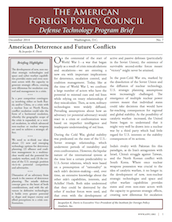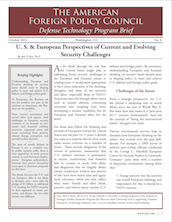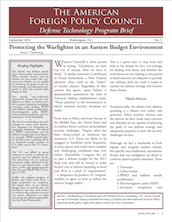
American Deterrence and Future Conflicts
On the centennial of the start of World War I—a war that began largely as a result of crisis miscalculations and escalations—we are entering a new era with important implications for deterrence, escalation control, and coalition management. Today, like at the time of World War I, we confront a large number of actors who have the potential to misread cues and red lines while relying on treaty relationships if they miscalculate. Then, as now, military technologies were widely diffused. Prevailing assumptions about how an adversary (or potential adversary) would react in a crisis or confrontation were based on imperfect intelligence and inadequate understanding of red lines...

